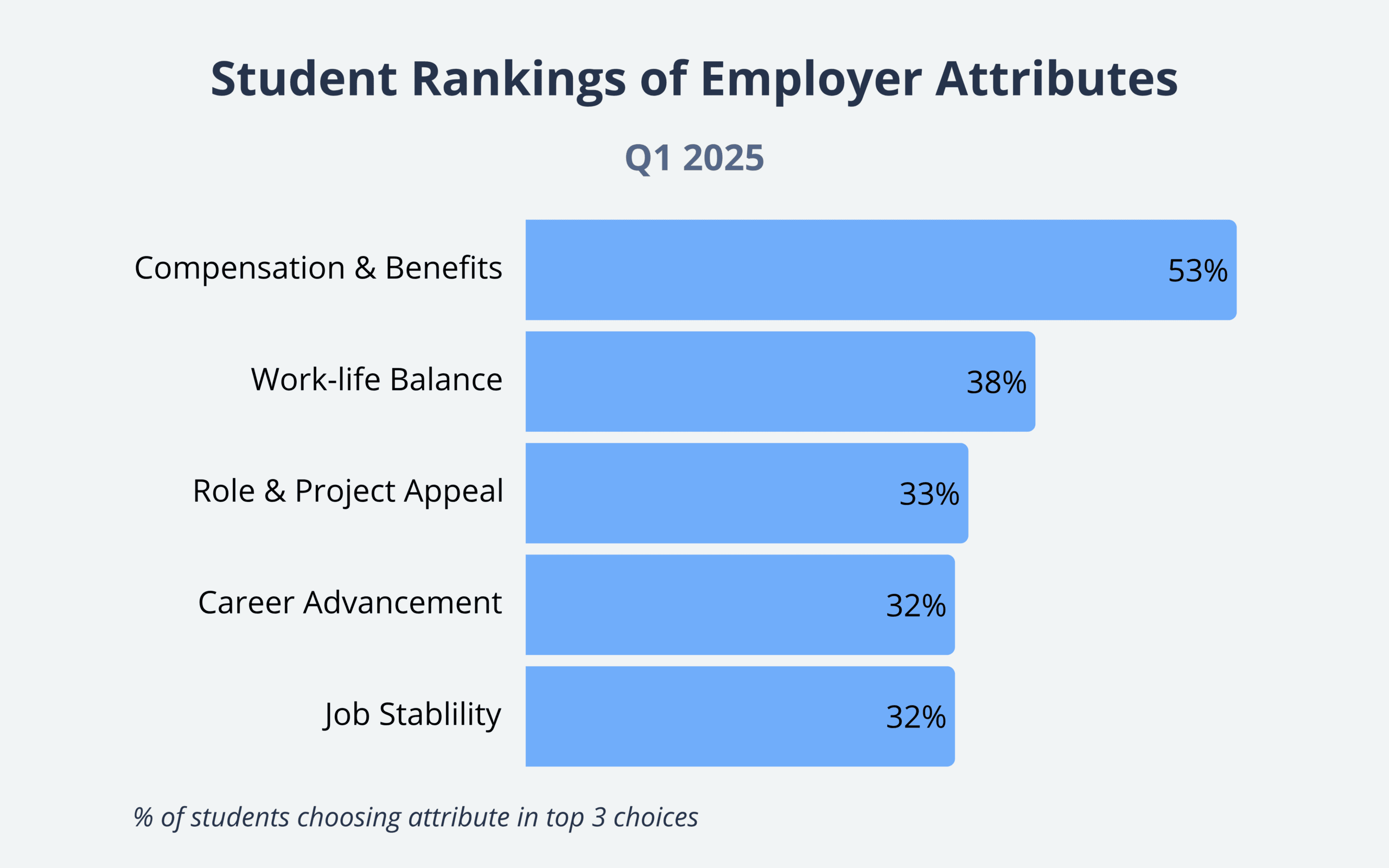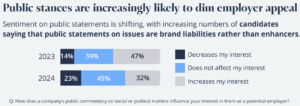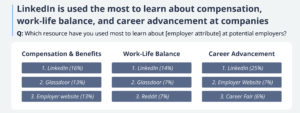June 18, 2025
Why Employer Brand Matters: A Strategic Guide for University Recruiting Leaders
What is the Point of an Employer Brand?
Employer brand isn’t just a recruitment buzzword. It’s the collective impression candidates have of your company as a workplace. While your consumer brand is about how people perceive your products or services, your employer brand answers a different question: “Do I want to work there?”
The purpose of an employer brand is to influence that decision. It communicates your culture, values, and what candidates can expect from the employee experience. A strong employer brand helps you stand out in a noisy hiring market, builds trust with prospective candidates, and creates alignment between what you promise and what employees experience.
Does an Employer Brand Really Matter When it Comes to Hiring?
In short: yes.
Employer brand influences every stage of the candidate journey. It shapes who applies, how quickly they engage, and how confident they feel in accepting offers. Veris Insights research shows that when Gen Z, in particular, evaluates employers, brand-level perceptions come before role details. Even with competitive compensation, candidates hesitate to apply if the brand feels unclear or misaligned with what they value most. In contrast, a strong employer brand helps candidates feel a sense of fit before they even enter the pipeline.

An employer brand that is aligned with student values drives outcomes. Candidates who rate an employer’s brand highly are significantly more likely to apply, advance through interviews, and accept offers. These candidates are also more likely to refer others and stay long-term.
Negative brand perceptions carry weight as well. When companies make public statements that feel misaligned or performative, candidate interest drops. According to Veris Insights research, 23% of candidates say that a company’s public commentary on social or political issues decreased their interest in applying. While value alignment still matters, performative messaging or controversy can harm an employer’s brand perception.
While many Gen Z candidates care deeply about how companies demonstrate their values, they also want transparency. A company that over-promises or appears disingenuous may struggle to convert these candidates into hires.

Benefits of Having a Strong Employer Brand
A strong employer brand supports every part of the hiring process. It helps teams build trust with candidates, reduce inefficiencies, and create lasting impressions that go beyond one open role.
Attracting and Hiring Top Talent Faster
A clear brand helps candidates picture themselves at your company. When they feel a sense of alignment, they are more likely to apply and move through interviews with interest and confidence.
This familiarity speeds up hiring. Candidates already understand your values and work environment. Instead of needing to convince them to value your company as a whole, the focus shifts to confirming that the position they are applying for is a mutual fit.
Lowering Recruiting Costs
Employer brand clarity helps reduce unnecessary outreach and repetitive conversations. It also cuts down on misaligned applicants and gives recruiters more time to focus on qualified individuals.
A recognizable employer brand improves the reach of unpaid efforts. LinkedIn, employee referrals, and your career site begin to carry more weight when candidates trust what they see. This shift brings down spend and supports long-term recruiting goals.
Becoming an Employer of Choice
When candidates actively want to work for you, the hiring process changes. They arrive more engaged, curious, and ready to say yes to the right role.
A strong employer brand creates that interest. It gives candidates a reason to follow your company and come back when future opportunities open up. This kind of loyalty is harder to build through job descriptions alone.
What Impacts a Student’s Perception of an Employer’s Brand?
Candidates evaluate employer brand through experience and observation. Messaging alone doesn’t carry the full weight. Their perception comes from what they read, who they talk to, and how the organization shows up consistently.
As noted above, the top three factors students consider when evaluating an employer’s brand are:
- Compensation and benefits
- Work-life balance
- Career advancement
When evaluating these factors, candidates want to see how employees are treated and how internal mobility plays out in real scenarios. For sourcing these insights, LinkedIn is the most-used channel. Glassdoor, Reddit, and employer websites also play a large role.

Investing in Employer Brand Will Drive Savings in Recruitment and Retention
A strong employer brand doesn’t stop at hiring. It helps teams close offers, increase referrals, and lower turnover. It sets clear expectations early, which leads to stronger engagement later.
With Early Career candidates, especially, strong employer brand shapes confidence. It helps them feel secure in choosing your company, showing them what to expect, and helping them to imagine a future inside your organization. Over time, that alignment reduces mis-hires and improves retention.
